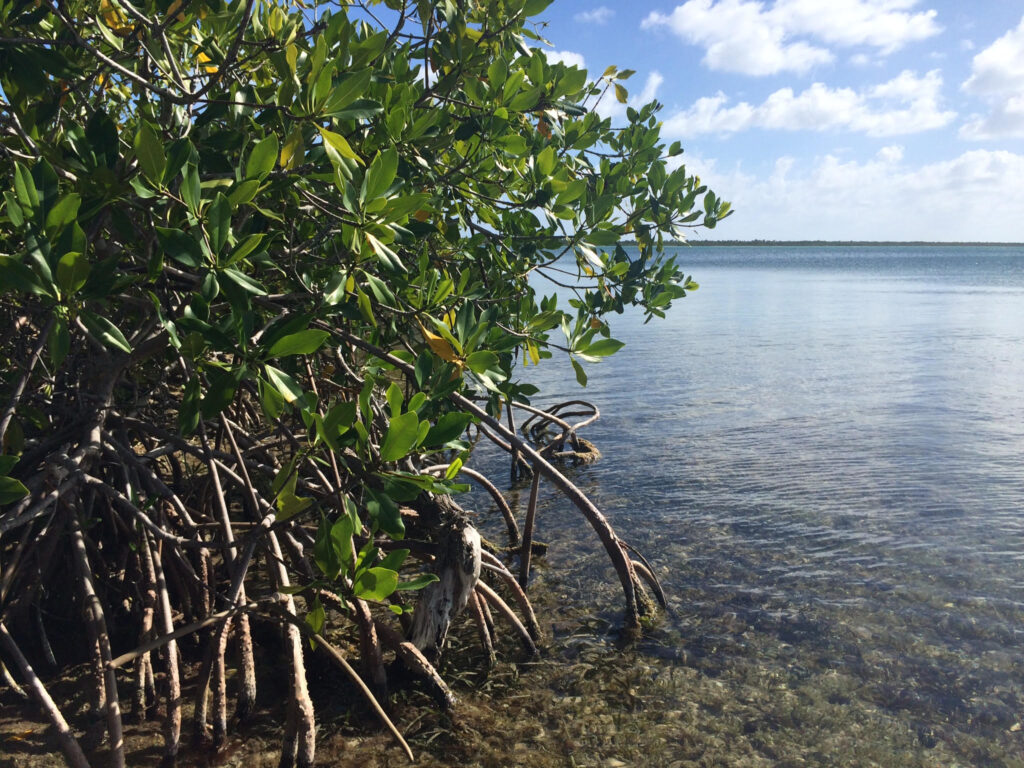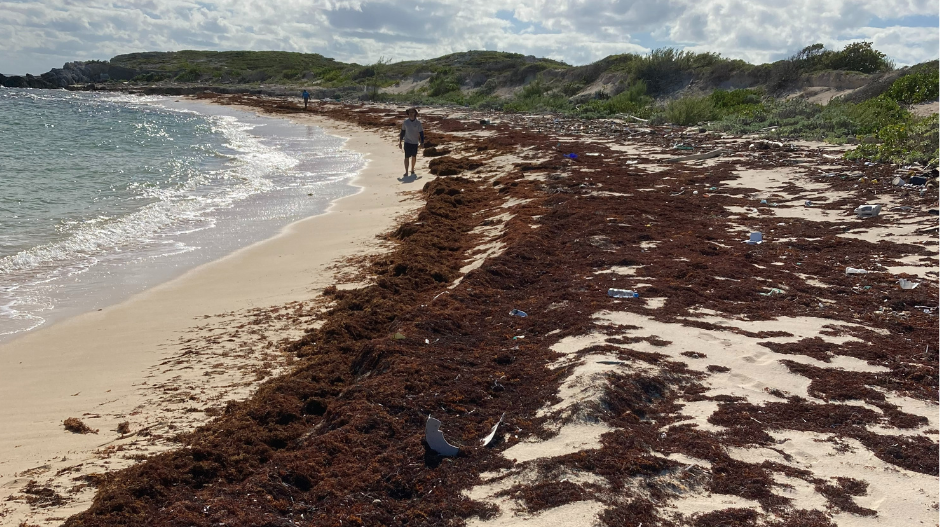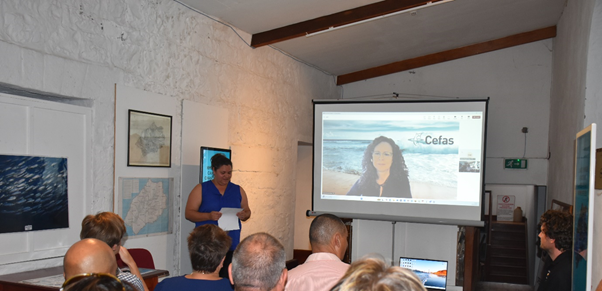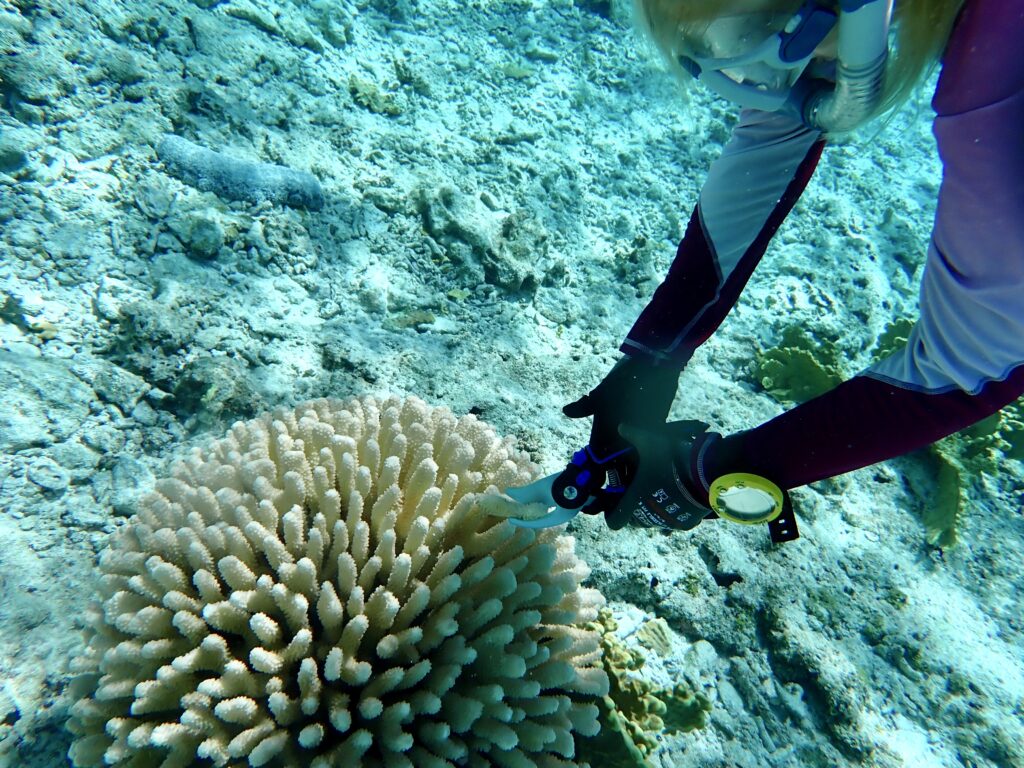
With oceans and biodiversity high on the agenda at COP30 in Belém this week, the vital role that marine ecosystems play in both tackling and adapting to climate change — especially for smaller islands and territories — is gaining increasing attention. A key part of the Blue Belt Programme's work is partnering with the UK Overseas Territories (UKOTs) to understand how climate change is affecting them – both now and in the future – and using this knowledge to help them adapt and build resilience.
As the Blue Belt Programme approaches its 10-year anniversary, we're taking stock of what we've achieved and looking ahead to what comes next. We sat down with Dr Emily Hardman, Senior Integrated Marine Manager at the Marine Management Organisation, and Dr Susana Lincoln, Senior Climate Change Scientist at Cefas, to talk about why climate resilience matters so much to the Overseas Territories and the vital work happening in this area.
Q: Why is climate change resilience so important to the UKOTs?
Susana: UKOTs depend very closely on vital resources from healthy oceans but are facing fast changes to their islands and seas. While we cannot necessarily stop global warming or other ongoing effects of climate change, the Blue Belt Programme can help UKOTs understand the potential risks of climate change and develop adaptation strategies.
Emily: As small islands, with unique environments and whose communities are dependent on their natural resources, the UKOTs are extremely vulnerable to climate impacts. Many territories are already facing rising sea levels, more intense hurricanes, coastal erosion, and saltwater intrusion into freshwater supplies. In the Caribbean, Anguilla and the Turks and Caicos Islands are experiencing increasing influxes of Sargassum seaweed washing up on their beaches in part due to warming sea temperatures. As it decomposes, it poses health risks, deters tourists and can greatly affect wildlife.

Susana: UKOT economies often rely on sectors that are highly sensitive to climatic shocks, like tourism or fishing. Tourism typically depends on pristine beaches and vibrant reefs to appeal tourists, but coastal erosion, coral bleaching, and extreme weather threaten these environments. As we know, commercial fish stocks are declining around the world, under the effect of climate change and other pressures, affecting the livelihoods of fisherfolk and their communities.
Emily: UKOTs also often have small populations, limited financial resources and constrained land area, which can reduce their ability to adapt to climate change. By working together to understand how the climate is changing, we can help UKOT communities adapt and build resilience to ensure they can continue to thrive.
Q: What work have we done so far to build UKOTs resilience to climate change?
Emily: A lot has been done! One major achievement was a health check of the coral reefs across the remote Pitcairn Islands Marine Protected Area, in the South Pacific Ocean, completed over the last two years. Using data collected by the community of Pitcairn Island in 2021, we studied the vulnerability of the corals to the effects of climate change. We are applying the results from that research to developing monitoring and early warning systems for these reefs.
Susana: We've also looked at how climate change might affect important marine species around St Helena, in the South Atlantic. Our study suggests that future temperature conditions should remain suitable for most native reef fish, although more research is needed to understand how other key variables could change, such as oxygen or nutrients. We shared our findings with the people of St Helena during their Marine Awareness Week by turning them into accessible outreach resources, to help them understand and adapt to the risks of climate change.

Susana: And back to the Pitcairn Islands! During a recent expedition to the outer islands, a team of scientists gathered samples and observations from the reefs. We want to understand their health and diversity and whether they are susceptible to any diseases. So far, the reefs of the Pitcairn Islands Marine Protected Area appear to be avoiding the worse effects of global warming. We want to understand what it is that helps these corals cope and how this may change into the future, so we can better protect them and apply what we learn to help other reefs.
Q: What future work will be carried out?
Susana: Looking ahead to a new strategy for 2026, climate change will be one of the core focuses of the Blue Belt Programme. This will involve assessing current and future climate risks across UKOTs and using these insights to help governments develop effective adaptation and mitigation strategies. We'll also work with the UKOTs to improve long-term monitoring of climate change and help develop the necessary skills and capacity to better understand climatic changes.

Emily: This scientific evidence is also essential for climate adaptation. Over the next three years, we’ll work with the UKOTs to review their marine management legislation, policies and strategies to ensure these can better respond to climate change. This might involve supporting local fisheries to prepare for and respond to changing fish distributions, for example.
Susana: We’re working with other organisations to help protect and restore natural habitats that can help alleviate climate impacts. For example, in the Caribbean OTs, mangrove forests and seagrass meadows are some of nature’s carbon sinks. By restoring them along with coral reefs they can help defend coastal areas from flooding and erosion during storms.
While research into future climate risks continues, through the Blue Belt Programme, we’re helping to equip the UKOTs to better understand these impacts and build up their capacity to adapt into the future. This will result in more resilient marine and coastal ecosystems, economies and livelihoods across the UKOTs.
Leave a comment